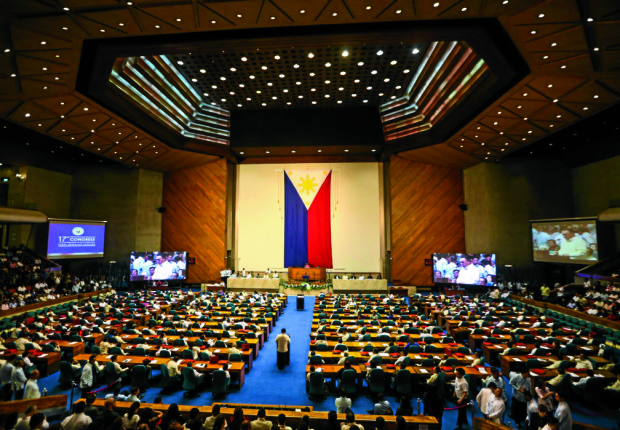Church warns of attempts to railroad death penalty bill
The politically influential Church urged its members on Thursday to resist “railroad attempts” to revive the death penalty in the predominantly Catholic Philippines, a decade after it was abolished by Congress.
The Catholic Bishops’ Conference of the Philippines (CBCP) asked Catholics to closely follow the House of Representatives’ deliberations on the death penalty bill, which will be tackled in plenary next week after hurdling the committee level.
President Duterte, who controls numbers in the House, has vowed to bring back capital punishment in the Philippines as part of his war on illegal drugs, which has so far left thousands dead since he assumed power on June 30.
“Let us show our opposition to capital punishment and be in the House gallery from Dec. 12 to 14, 4 p.m. onwards as a show of support for our antideath penalty congressmen champions,” said Rodolfo Diamante, executive director of the CBCP’s Episcopal Commission on Prison Pastoral Care.
A bill calling for the revival of capital punishment was approved at the committee level on Wednesday, with a vote of 12-6 and one abstention. This means that it may be possibly passed on third and final reading before Christmas.
Article continues after this advertisementArticle continues after this advertisement
Sanctity of human life
Diamante said Catholics as “right-minded individuals who believe in the sanctity of human life and the dignity of every person” should all “stand up and resist this railroad attempt to pass this antilife and antipoor measure.”
“Let us make a more forceful stand against the death penalty. Now more than ever, we need to act fast and swiftly to counteract the prevailing culture of death in our society,” he said.
He added that the measure was antipoor and violated international agreements against capital punishment that the Philippines has signed.
Vice President Leni Robredo, who this week resigned from the Duterte cabinet, has emerged as one of the leading voices against the death penalty.
She told the Inquirer on Thursday that Mr. Duterte’s allies in the House “hurried” the approval of the bill.
“It appears that it was done in haste only to grant what the President wants,” Robredo said.
House Speaker Pantaleon Alvarez, reacting to Robredo, argued that the Philippines was practically the only Asian country that bans capital punishment. He said even the United States imposes the death penalty.
He stressed that the 1987 Constitution itself stated that the death penalty may be restored for heinous crimes, arguing that the charter overrides any international protocol.
